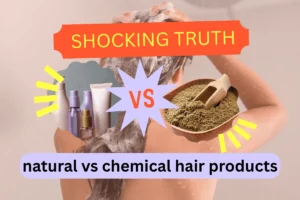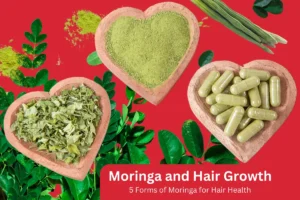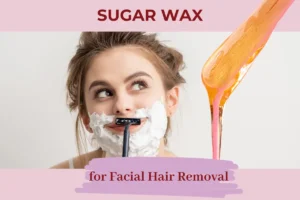How can I manage dandruff without causing hair loss is a common issue among people. To keep dandruff under control, use a dandruff-specific shampoo, warm water, avoid oil-based hair products, keep your scalp clean, and maintain a healthy diet rich in zinc and B vitamins.
Table of Contents
Introduction: Understanding Dandruff and Its Causes
A lot of people become perplexed and ask how to maintain a healthy scalp without losing hair or how can I manage dandruff?
10 causes of Dandruff:
- Dry Skin: Lack of moisture on the scalp can lead to small, flaky skin shedding, causing dandruff.
- Oily Skin: Excessive oil production can result in a buildup of skin cells, leading to dandruff.
- Fungal Infection: The overgrowth of a fungus called Malassezia on the scalp contributes to dandruff.
- Not Enough Shampooing: Dandruff is encouraged by the accumulation of oil and dead skin cells that occur from infrequent cleaning of head.
- Hair Products: Certain ingredients in hair care products may irritate the scalp which cause dandruff.
- Skin Conditions: Skin shedding can be accelerated by conditions such as psoriasis or eczema, which can result in dandruff.
- Dietary Factors: Food sensitivity or malnutrition may be a factor in dandruff.
- Stress: Excessive stress can either start or exacerbate dandruff.
- Age: Dandruff is more common during puberty and early adulthood.
- Weather: The moisture balance of the scalp can be affected by extremely hot or cold temperatures, which can result in dandruff.
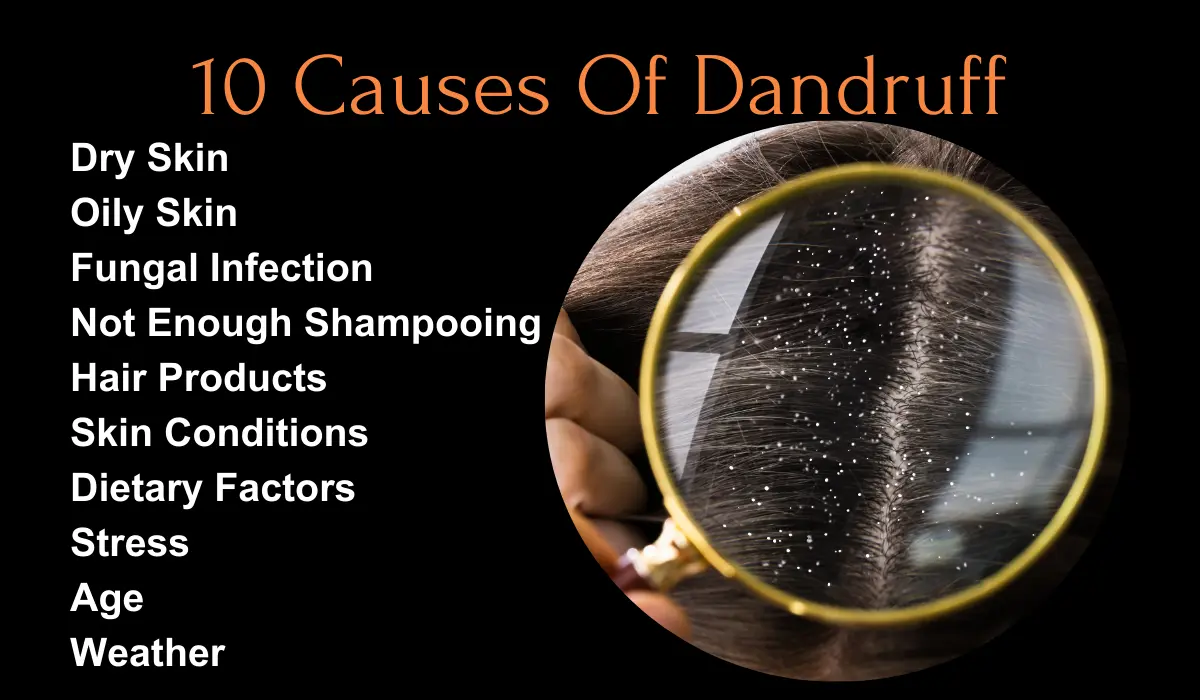
Dandruff and Hair Loss:
Dandruff itself does not directly cause hair loss. However, it can lead to inflammation, itching, and scratching, which may damage your hair follicles, leading to hair loss.
Tips To Manage Dandruff Without Causing Additional Hair Loss:
Effective Dandruff Home Remedies:
When it comes to effective dandruff home remedies, consistency is key. Try these effective dandruff home remedies today, and say goodbye to those annoying flakes.
- Tea Tree Oil Treatment: Tea tree oil’s inherent antifungal qualities support a healthy scalp by assisting in the fight against the fungus that causes dandruff.
- Apple Cider Vinegar Rinses: Apple cider vinegar helps to balance the pH of the scalp and reduce dandruff.
- Aloe Vera Application: The soothing properties of aloe vera help reduce inflammation and itching on the scalp, which makes it a useful treatment for dandruff.
Neem and Dandruff:
Neem and dandruff have a long-standing connection in natural hair care remedies.
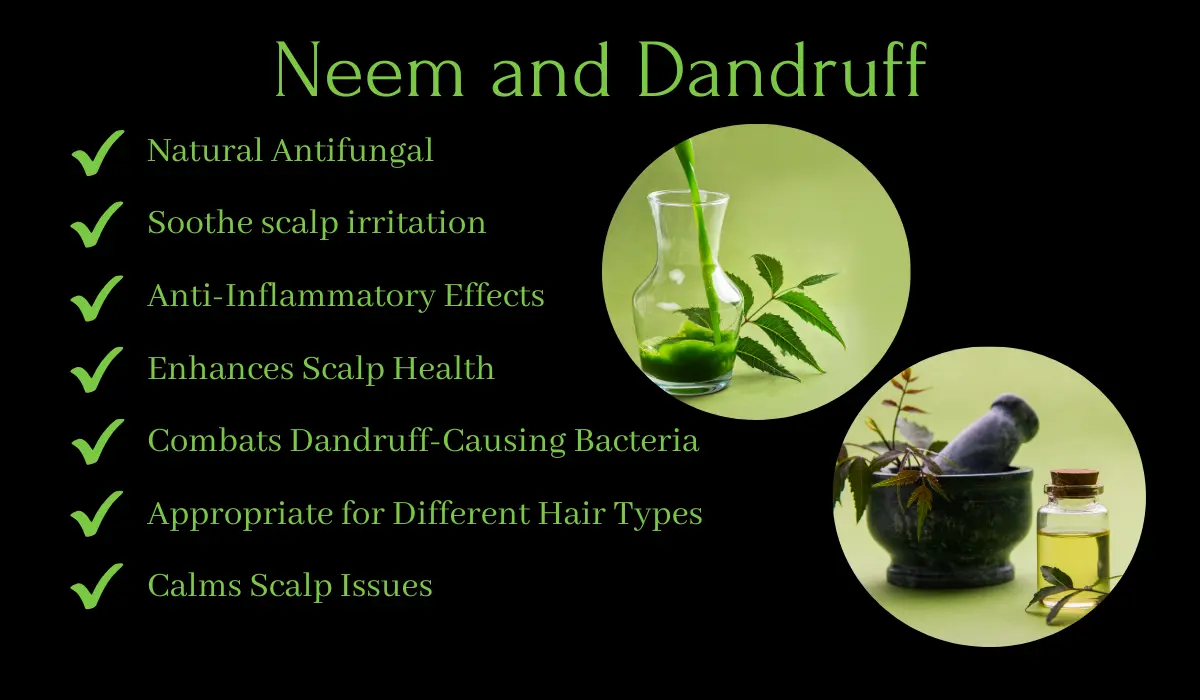
- Natural & Antifungal: Neem, sometimes referred to as Indian lilac, has inherent antifungal qualities that help it effectively treat dandruff.
- Reduces Itching and Irritation: Applying neem oil or neem-infused products to the scalp might help reduce itching and irritation associated with dandruff.
- Anti-Inflammatory Effects: Neem’s anti-inflammatory properties make it a good choice for relieving dandruff-related inflammation on the scalp.
- Controls Excess Oil: Neem aids in controlling the amount of oil produced on the scalp, keeping it from getting overly greasy.
- Addresses Dry Scalp Issues: Neem oil can add moisture to people who have dry scalp, which can contribute to dandruff and increased flakiness.
- Stops Fungal Growth: The antifungal qualities of neem not only cure existing dandruff but also aid in stopping the fungus that causes it from growing.
- Enhances Scalp Health: Neem is a great way to avoid dandruff recurrence because it regularly used to enhance the health of the scalp as a whole.
- Simple to Use: Neem is useful in a variety of forms, including paste, oil, and shampoo. It is convenient for those looking for relief from dandruff because of its versatility.
- Natural Substitute for Chemical Products: Neem offers a secure and reliable substitute for those seeking natural solutions for dandruff that don’t contain chemicals.
- Combats Dandruff-Causing Bacteria: Fights germs That Cause Dandruff: Neem’s antibacterial qualities go after the germs that cause dandruff, tackling the issue at its source.
- Cost-effective: When compared to certain commercial anti-dandruff products, neem is a more cost-effective solution for dandruff.
- Simple to Include in Routine: Neem is easy to incorporate into your hair care regimen; it can be put straight on the hair or combined with other treatments.
- Appropriate for Different Hair Types: Neem is a versatile remedy that works for a wide range of hair types and textures.
- Calms Scalp Issues: Neem is well-known for its ability to relieve a variety of scalp issues, including dandruff, and for encouraging a healthy scalp in general.
Choosing the Right Shampoo:
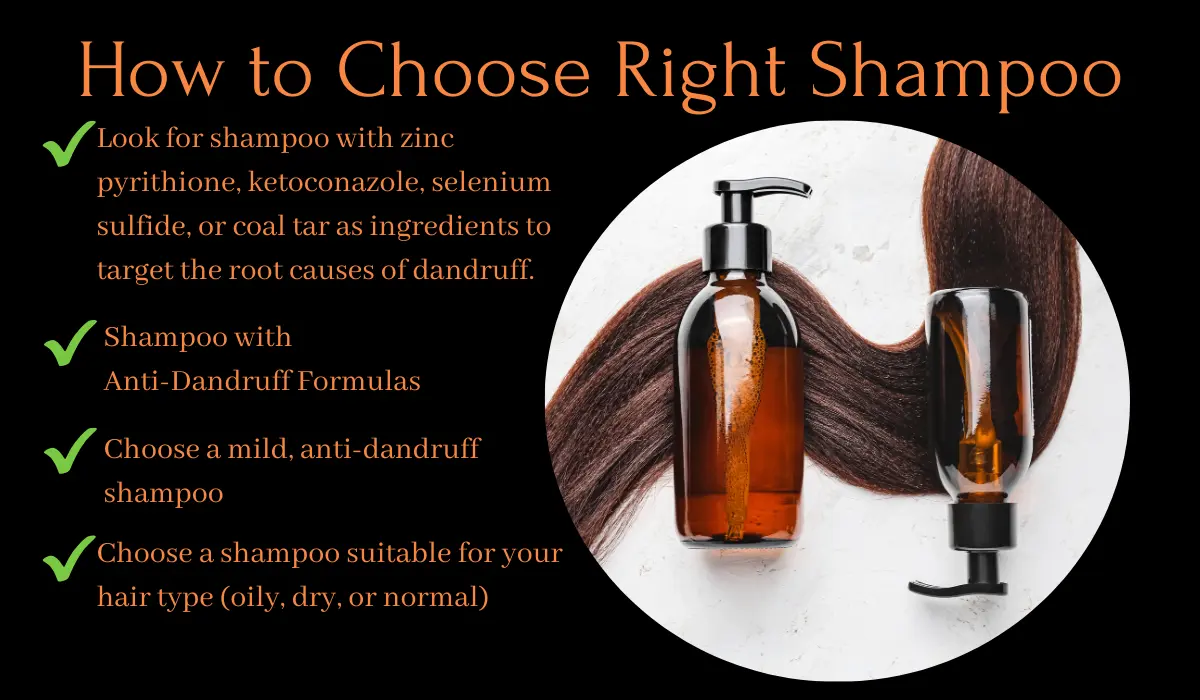
- Look for Key Ingredients: Look for shampoo with zinc pyrithione, ketoconazole, selenium sulfide, or coal tar as ingredients to target the root causes of dandruff.
- Anti-Dandruff Formulas: Prioritize shampoos which designed to combat dandruff, ensuring they meet your scalp’s needs.
- Avoid Overly Fragranced Shampoos: Choose a mild, anti-dandruff shampoo that is gentle on your scalp.
- Shampoo for Your Hair Type: Choose a shampoo suitable for your hair type (oily, dry, or normal)
Maintaining a Healthy Scalp:
- Regular Hair Wash: To maintain a clean and healthy scalp, wash your hair frequently to get rid of extra oil and debris.
- Correct Conditioning: To keep your hair hydrated and avoid dryness and flakiness on the scalp, use an appropriate conditioner.
- Gentle Drying: To prevent irritation and possible scalp damage, pat dry your hair softly rather than rubbing it dry violently.
- Scalp Massage: It increases blood circulation and promotes a healthier environment for hair development.
- Avoid Scratching: Try not to scratch your scalp too much as this can cause irritation and skin damage.
- Right Hairbrush: To avoid irritating your scalp and equally distribute natural oils throughout your hair, use a brush with soft bristles.
Balanced Diet for Dandruff Control:
Always maintain a healthy and balanced nutrients rich diet. Include Include Omega-3 Fatty Acids, Zinc-Rich Foods, foods with Vitamin A, Vitamin E, Biotin, Lean Protein in your daily foods to reduce inflammation, to produce healthy sebum on the scalp,
| Foods | Sources |
| Omega-3 Fatty Acids | Fish, flaxseeds, and walnuts |
| Zinc-Rich Foods | Pumpkin seeds, and lentils |
| Vitamin A-Rich Foods | Carrots, sweet potatoes, and spinach |
| Vitamin E Sources | Nuts, seeds, and spinach |
| Biotin-Containing Foods | Eggs, nuts, and avocados |
| Whole Grains | Brown rice and quinoa |
| Lean Protein | Poultry, tofu, and beans |
Stress Management and Dandruff:
Dandruff can be made worse by stress, so make an effort to reduce it with yoga, proper sleep, and relaxation techniques.
Regular Scalp Massages:
While washing, gently massage your scalp to assist release and eliminate flakes. Take care not to rub too hard, since this may cause damage to the hair follicles.
Avoiding Heat Damage:
- Limit the amount of heat styling and put precautionary safeguards in place.
- Hot water can strip away natural oils from your hair and exacerbate dryness. Instead, wash your hair with lukewarm water.
Allergies and Sensitivities:
Determine which allergies might be causing your dandruff and modify your lifestyle as needed to relieve the symptoms.
Consult a Dermatologist:
If home remedies prove ineffective then consult a dermatologist to get assist in determining the root cause and provide customized therapies or prescription drugs based on your requirements.
Conclusion:
Treating dandruff early on is important since long-term irritation and inflammation may cause hair loss. You may efficiently manage dandruff without increasing the risk of additional hair loss, though, by taking the right measures and using the right solutions.
FAQs: How can I manage dandruff without causing hair loss?
Can dandruff directly lead to hair loss?
No, dandruff itself doesn’t directly cause hair loss. However, persistent scratching due to itching may contribute to hair damage.
How often should I wash my hair to control dandruff?
It is advised to wash your hair frequently, at least twice or three times a week, using an anti-dandruff shampoo.
Is neem oil useful for dandruff control?
Yes, neem oil is indeed useful for dandruff control. Neem and dandruff have a long-standing connection in natural hair care remedies. Neem oil possesses natural properties that make it effective in managing dandruff.
When should I seek professional help for dandruff?
If You are looking to manage dandruff without causing hair loss and home remedies and over-the-counter products don’t alleviate dandruff, consulting with a dermatologist is advisable.
Can dandruff spread from one person to another?
No, dandruff itself is not contagious and cannot spread from one person to another.

